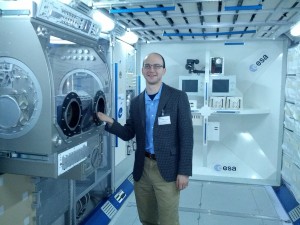Most of my writing effort now goes to government publications or peer-reviewed literature. I don’t have any current plans to maintain updates on this blog but will keep it around for posterity for now.
Going to Duke!
I will be an Assistant Professor of Emergency Medicine and Mechanical Engineering & Materials Science at Duke University starting in July 2018. It will be a dual appointment through the Schools of Medicine and Engineering and I will have both engineering research and clinical roles. My lab will be based out of Duke Robotics and I am starting to look for interested grad students and post-docs to start Fall 2018.
My research focus will be medical technology development for human spaceflight and medical drones.
Thanks to all the friends, family, and US taxpayers who have supported me through this 30 years long, strange trip through the American educational system.
New Publication about Physician, Engineer, and Life Scientist differences
Sarah Miller and I wrote a primer on training and differing ways of thinking between MDs, Engineers, and Life Scientists.
Abstract: Many of the failures in communication among physicians, engineers, and life scientists may be due to the differing ways that they approach problems. More than mere personality differences, physicians, engineers, and life scientists are trained with different problem-solving philosophies and strategies. This chapter discusses these differences, provides several example problems that characterize these three different ways of thinking, outlines the corresponding differing approaches to failure, and concludes with a glossary of some terms that are used in different ways across these three fields.
It is included as a chapter (pdf) in Williams, R. S. and Doarn, C. R. (Eds.) Engineering, Life Sciences, and Health/Medicine Synergy in Aerospace Human Systems Integrations – The Rosetta Stone Project (Ch 4, p37-44). NASA-SP-2017-633. (NTRS)
Post-Residency Plans
It is time to start planning my career after residency and considering in more detail how my skills as an physician-engineer could support a university or company. I would appreciate suggestions or contacts that could lead to a dual appointment in engineering and clinical departments in an academic institution or a similar setup in industry.
1. Looking for academic engineering departments or industry companies that are currently working on biomedical engineering questions or are interested in developing that expertise
2. Would fit well in biomedical engineering or aerospace or mechanical engineering groups who are looking to add clinical expertise from a PhD engineer who can travel in both worlds
3. Willing to add my own research portfolio and/or support existing research projects that need clinical expertise in the engineering domain (or vice versa).
Please send a private message or email if you prefer not to comment directly on this post, and thank you in advance!
Medical Career continued: Soon to be a Resident in Emergency Medicine
I recently matched into an Emergency Medicine residency at George Washington University Hospital in Washington DC to start in June 2014. I’m looking forward to the new challenges and experiences in a new city and position.
New Article in EP Monthly
On why NASA has recently shown a preference for Emergency Medicine physicians for its MD astronauts:
Emergency Physician Monthly: EP’s in Space!
TEDMED
I’m honored to accept a Frontline Scholarship from the generous benefactors of TEDMED. I look forward to being in DC next month to meet some of the people on the forefront of medical innovation.
Talk at ESA EAC

Me in the ESA Columbus Module Mockup
Yesterday (Feb 21) I gave a presentation at the ESA European Astronaut Center in Cologne, Germany on using ultrasound for spaceflight imaging of the spine. I was mostly talking to the students in the King’s College London Space Physiology & Health Masters Program. As part of their year-long program the students, about 9 every year, travel to the EAC to learn about operational space medicine in Europe. The goal of the program is to produce Biomedical Engineers conversant in space medicine who can then go off to work in commercial space or in their local space program. If they can’t find jobs in human spaceflight then the program also prepares them to work in a physiology lab. It seems like a very robust degree program, and also an indication that commercial human spaceflight is drawing enough interest that students are willing to spend tuition and time to be prepared to work in the industry. And, if I can go by the types of questions I was asked after my presentation, the students and faculty are well prepared.
What will go here
I plan to use this space as a hub for my work. Blog posts will probably point to news items and mentions by others.